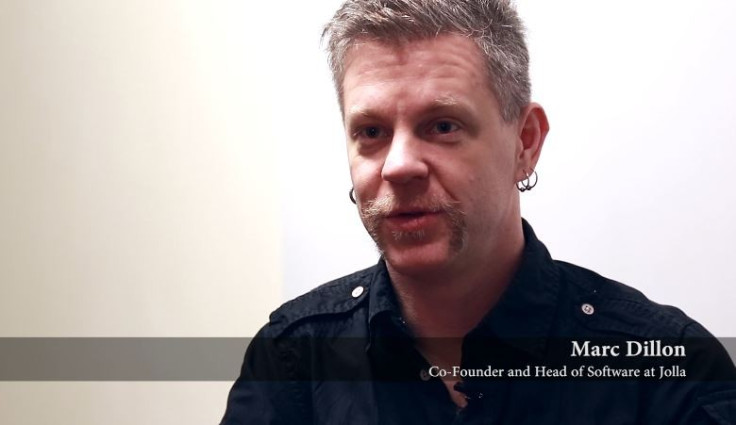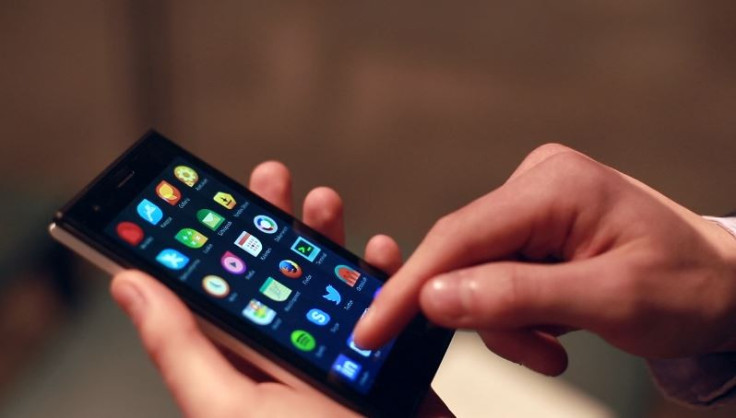Jolla: We Don't Need to be Big to be Great [VIDEO]
Jolla co-founder and head of software Marc Dillon talks to Alistair Charlton about what the humble Finnish smartphone maker wants to achieve, and why a great company doesn't need to have a large market share.

As an exercise in creating a smartphone business, Jolla shouldn't really work. Cast aside by Nokia and Intel as an abandoned mobile operating system lost in the shadows of iOS and Android, Jolla survived only through the determination of a handful of former Nokia staff who believed in what they had made together.
Little more than a bunch of enthusiasts with a shared passion to bring Meego back to life, Marc Dillon and four other co-founders created Jolla at the start of 2012, with the aim of bringing an all-new smartphone running an all-new operating system to an international market by the end of 2013 - and with a launch event in Finland earlier this week, they have accomplished that remarkable feat.
In my interview with Dillon, who was hosting a preview event at a London hotel for journalists to try out the new phone, I ask what Jolla as a brand stands for, and why consumers should consider Sailfish over iOS or Android.
"People building value [is what we stand for]. We took the absolute best mobile professionals in the world and we built an open platform for innovation. The situation [of the smartphone market] is that people can only buy what's offered to them and they basically have two choices.
"There are lots of different manufacturers who are using Android, but there's only really one way to use the phone - it's very difficult to innovate and create something new."
New kinds of innovation
Dillon went on to say Jolla is "beginning something where this open mobile platform will allow new kinds of innovation that you basically can't get from the other guys at the moment."
Jolla's unique feature is The Other Half, where the back half of the phone can be removed and replaced. At first, this lets users personalise their phone with different colours, but more interestingly, covers can interact with the device by sending commands over NFC.
Dillon explains: "That chip could also be used for security...you could have a security token for work, so you put one of these on and there's your VPN and your email and all that kind of stuff - maybe it even turns off your Facebook and your Twitter - but then when you take it off and leave it on your desk at the weekend you know you're not going to be hassled with work, and if you lose your phone there's no security [problem]."
Compatibility
Jolla is looking for developers to create native applications for the phone's Sailfish software, but having seen Microsoft and BlackBerry struggle to stock their application stores with the content users want, Android compatibility was a must-have feature from the start.
"Sailfish was designed from the very beginning to enable running Android application," Dillon said. "It's not an emulator, they run just as they would on an Android device - with the exception of the Home button because we don't need a Home button, we don't have buttons in our UI."

Barrier of entry
Dillon agrees that offering Android apps was "crucial" to Sailfish being a success, adding: "The barrier of entry for a new mobile operating system for many people is, [a case of] there's a few applications that they really depend on, and if they can't have access to those applications then they aren't going to be interested in the phone or the operating system."
Sailfish offers apps from "several" Android app stores, but Google's own Play store is not included, putting the Jolla handset at a distinct disadvantage to its Android-running rivals - and with a €399 retail price ("and about the same in pounds"), a lack of Play store access could pose a major stumbling block at launch.
With around 100 employees, Jolla is a tiny company compared to the likes of Apple, Samsung and Google, but it doesn't necessarily believe that being a big company is the same as being a great one.
A great company, not a big company
When I ask what Dillon thinks of Jolla's potential to upset the smartphone market, he explains: "We want to be a great company [but] we don't need to be a large company in order to do that. There are no real small players in this industry, there is a certain amount of growth that is expected.
"I believe that [our rivals] are going to be looking at the things we're doing and probably going to try and copy the things that we're doing...we're going to continue to move forward."
Jolla's aim is also to build relationships with its customers and to listen to their demands for improvements to hardware and software. "First and foremost [our target] is adding value...the software updates are coming [and we are asking users] 'what are you interested in having on your device?' and we're wanting to answer that. That's how we build a relationship with our consumers as we go forward."
Word-of-mouth
Moving forward will mean selling to consumers who haven't heard of Jolla, or appreciate Dillon and his team's efforts to resurrect Meego - but he remains confident that word-of-mouth marketing will see the company sell "millions" of devices next year. "It only takes 21 steps, if each person tells two people, to reach a million," Dillon reasons.
Jolla's first phone is very much a work-in-progress, and while that might appeal to the fans who have seen Meego develop into Sailfish and are keen to support the software as it grows, few consumers used to the iPhone and Samsung Galaxys will understand why Jolla is different and why it deserves praise.
Time will tell if Dillon and his team can convince networks to stock the phone and consumers to buy it in large enough numbers to turn a profit - but even getting this far, in less than two years, is an enormous achievement in itself.
© Copyright IBTimes 2025. All rights reserved.






















